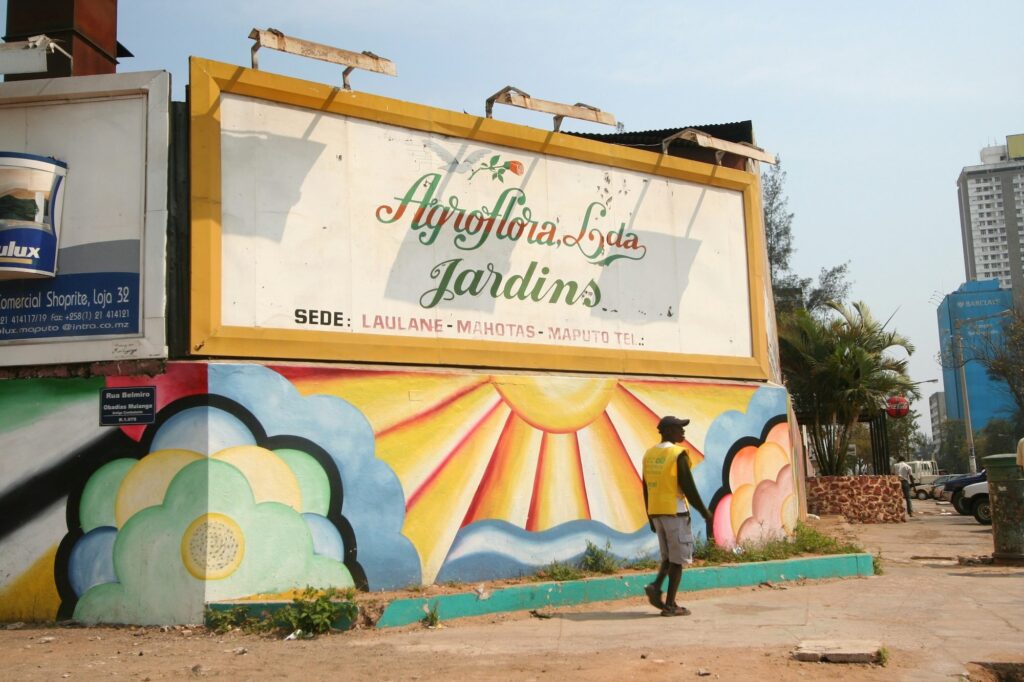I have always wondered what happens on international trade missions. I imagined they involved lots of cultural events and posh dinners as the host nation tries to impress potential investors.
In late April, I was invited to observe Dubai Chambers’ trade mission to Angola and Mozambique in southern Africa and I finally got to see for myself. There was little wooing, but lots of meetings.
Angola and Mozambique are former Portuguese colonies celebrating the 50th anniversary of independence this year. In both countries, hard-fought freedoms were followed by decades of civil war.
First stop Luanda
Our first stop was Luanda, the capital of Angola – Africa’s fourth-largest oil producer and once, somewhat generously, described as the next Dubai. Despite the country’s vast hydrocarbon wealth, prosperity remains tightly concentrated among a small elite. According to the International Fund for Agricultural Development, about 68 percent of the population still lives below the poverty line.
Over two days in Luanda, Dubai Chambers facilitated 252 meetings, with representatives of 20 Dubai-based companies operating across sectors including agriculture, construction and engineering, electronics, energy, IT, retail, logistics and real estate. The set-up was much like a parents’ evening, with Angolan businesses booking time slots to meet the visitors seated at tables in a hall.
Mohammad Ali Rashed Lootah, CEO of Dubai Chambers, told a packed business forum that Angola represents a “compelling landscape” thanks to its growing population, abundant natural resources and economic diversification aims. The country is already home to a $4 billion sovereign wealth fund.
Dubai Chambers has identified opportunities to increase merchandise exports to Angola, particularly mobile phones, pharmaceuticals, textiles, perfumes, aluminium panels and rice. (At present, the bulk of trade is exports of vehicles and petroleum products.)
It has also pinpointed prospects for Dubai companies in oilfield services, airport management, health services, marine technologies and infrastructure.
One might have expected Dubai Chambers to be welcomed with open arms. Au contraire
One local delegate told me his biggest challenge is that there is no manufacturing of oilfield services equipment in Angola; everything has to be imported. He said an investor from Dubai could profitably target both the Angolan market and Africa’s newly emerging oil producers.
Over the past five years, UAE companies have invested close to $600 million in Angola through 31 projects. Major investors include DP World, Abu Dhabi Ports, Dubai Investment Parks and Amea Power, which are modernising and expanding the country’s infrastructure.
Such a pity, then, that the head of the Angolan Chamber of Commerce in his welcome speech to the business forum got the nation of the visiting delegation wrong, not once but three times – first calling it the Republic of Arabs, before settling on Namibia.
Moving on to Maputo
Next up was Maputo, the capital of Mozambique.
The UAE is Mozambique’s biggest investor, accounting for 29 percent of the $8.7 billion of foreign investment projects approved between 2000 and 2024. At the start of May, DP World kicked off a $165 million project to double the capacity of the container terminal at the Port of Maputo, which it has operated since 2008.
TotalEnergies of France may be about to restart investing in a partially completed LNG project in the troubled northern Cabo Delgado province. If completed, it would transform Mozambique’s economy.
Given the UAE’s investment history, one might have expected the Dubai Chambers trade mission to be welcomed with open arms.
Au contraire. Despite visas having been issued in advance, the group was held up at immigration control as one man in uniform flexed his power. It was clear what he wanted.
The incident was resolved by the chance arrival of an evidently important woman who recognised one of the group and waved everyone through. It was not a one-off: a visa-holding delegate who flew in the following day was held for 45 minutes while he refused to pay a bribe.
This was a bad first impression to leave on potential investors. But it appears corruption is endemic in Mozambique, as reflected in the local saying: “Goats eat where they are tied.” The cynical adage alludes to the theory that officials – goats – lean towards corruption, whichever field they may graze in.
In numerical terms, the Mozambique mission was a great success. Dubai Chambers facilitated 356 business meetings, having identified investment opportunities in agro-processing, tourism, energy, packaging and wood processing, and the potential to increase exports of wheat, frozen fish, mobile phones and diagnostic equipment from the UAE. (The main exports from Dubai are currently petroleum products, vehicles and construction materials.)
During another packed-out business forum, Mozambican officials praised Dubai as an example of how a strategic vision can transform a city into a global market. They listed recent legislative reforms aimed at attracting more investors to the country including … wait for it … an e-visa scheme that has made travelling to Mozambique much easier. Cue wry smiles among the trade mission participants.
Many of the delegates I met had done business elsewhere in Africa and were now considering Angola and Mozambique purely on the basis of Dubai Chambers’ efforts.
It takes a determined person to invest in Africa: investors need to be willing to grapple with currency issues and evolving security risks. As Dubai Chambers looks to continue its programme of African trade missions, bringing with them prospects of investment and job creation, host nations would do well to note that the small details really matter.
Like getting the name of the visiting nation correct and sending the goats to the butchers beforehand. Anything less and they are harming their people’s chances for a better existence before the business meetings have even started.
Liz Bains is a business journalist covering Africa and the Middle East



